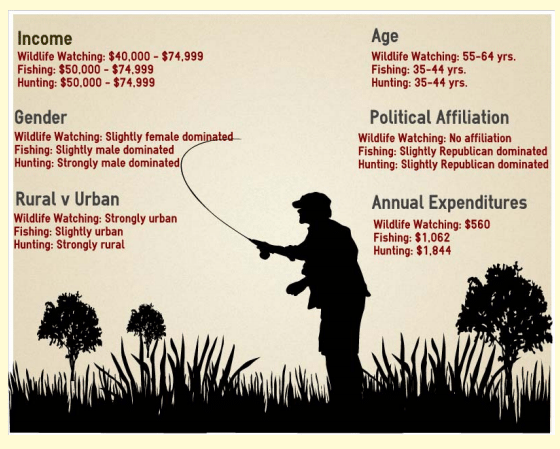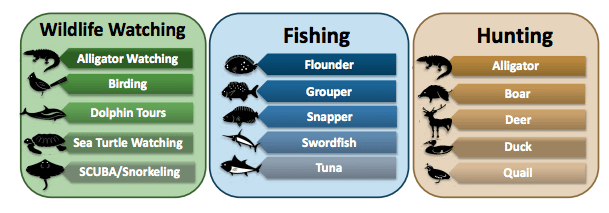Skift Take
Tourism is a big part of Gulf Coast economy, and it has made a comeback post BP-oil spill, but lot more needs to be done on environmental conservation to keep building the economy back. Understand the wildlife tourist is a big part of that process.
The five Gulf Coast states of Louisiana, Florida, Texas, Alabama and Mississippi are hugely dependent on their natural ecosystem, environment and the resultant tourism for their livelihoods. The BP oil spill highlighted that in a very tragic way three years ago. Now a report “Wildlife Tourism and the Gulf Coast Economy”, from economic research firm Datu Research, handicaps the size of the wildlife-based tourism industry in the region, and concludes that investment in coastal environmental restoration is key to keep the tourism growing.
The topline findings are: wildlife tourism generates more than $19 billion in annual spending, attracts 20 million participants per year across these states, and delivers $5.3 billion annually in federal, state and tax revenues.
But what do they mean by wildlife tourists? The report defines them as “wildlife watchers, recreational fishers and hunters.” On the flip side, the business of wildlife tourism is 1) guide and outfitter businesses that directly serve wildlife watchers, recreational fishers and hunters, and 2) relevant lodging and dining establishments where these customers eat and sleep.
The report also comes up with an interesting profile of a wildlife tourist in these states. Personas and profiles are meant to be cliches, so take them for what they are instead of trying to find deeper political meaning in it.
The “average” angler or hunter tends to be a conservative republican male between the ages of 35 and 44, with an annual salary of $50,000-$74,999. Wildlife watchers do not broadly affiliate with any one particular political leaning. The average hunter lives in a rural area, while the average wildlife watcher lives in an urban setting. The average angler is only slightly more likely to live in an urban setting.
And what each of those activities entails:
Get Skift Research
Skift Research products provide deep analysis, data, and expert research on the companies and trends that are shaping the future of travel.
Have a confidential tip for Skift? Get in touch
Tags: gulf coast, Travel Trends, usa


